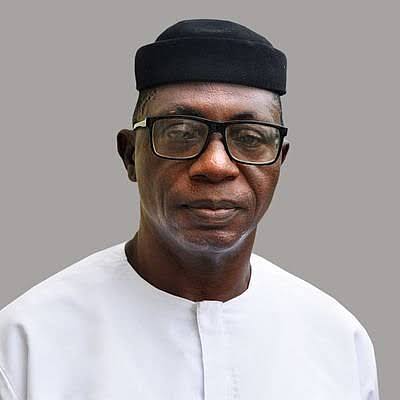By Dr. Olusanya Awosan
The words of Matthew 20:26 resonate with timeless wisdom: “But it shall not be so among you: but whosoever will be great among you, let him be your minister.” This concept of servant leadership, woven throughout the Bible, stands in stark contrast to the reality witnessed in Nigerian politics, where power is too often wielded as a tool for personal gain, leaving the majority of citizens languishing in poverty.
The scriptures offer a scathing indictment of such selfish use of power. Proverbs 28:16 warns, “A tyrannical ruler lacks judgment, but one who hates ill-gotten gain will enjoy a long reign.” Yet, many Nigerian Politicians seem to have turned a blind eye to this wisdom, amassing wealth through corrupt practices while the nation’s infrastructure crumbles and basic needs remain unmet. This blatant disregard for the welfare of the people echoes Amos 5:11, which condemns those who “trample on the poor and take from them levies of grain.”
The Bible repeatedly emphasizes the importance of caring for the vulnerable and using resources for the common good. Isaiah 1:17 instructs, “Learn to do right; seek justice. Defend the oppressed. Take up the cause of the fatherless; plead the case of the widow.” Instead, many Nigerian politicians prioritize self-enrichment, neglecting their duty to uplift the downtrodden and ensure equitable distribution of the nation’s wealth. This blatant disregard for the plight of the poor directly contradicts James 2:5, which states, “Listen, my beloved brothers, has not God chosen those who are poor in the world to be rich in faith and heirs of the kingdom, which he has promised to those who love him?”
The consequences of this selfish political leadership are dire. Proverbs 29:2 warns, “When the righteous thrive, the people rejoice; when the wicked rule, the people groan.” Nigeria’s high poverty rate, inadequate healthcare, and struggling education system are testaments to the devastating impact of a political class that prioritises personal gain over the well-being of their people.
However, the Bible offers hope alongside its condemnation. It calls for repentance, a turning away from selfish desires and a return to the principles of servant leadership. This has become VERY URGENT.In Isaiah 58:6-7, God declares, “Is not this the kind of fasting I have chosen: to loose the chains of injustice and untie the cords of the yoke, to set the oppressed free and break every yoke? Is it not to share your food with the hungry and to provide the poor wanderer with shelter—when you see the naked, to clothe them, and not to turn away from your own flesh and blood?”
This call to action resonates deeply within the Nigerian context. Hunger and starvation are going beyond elastic limit. Where are the voices of the Prophets, like that of the Prophets of Old? Our situation demands a radical shift in mindset, where leaders see themselves as servants of the people, entrusted with the responsibility to uplift and empower. It requires a commitment to transparency, accountability, and equitable distribution of resources.
The path forward is clear. Nigerian leaders must heed the timeless wisdom of the scriptures and embrace the principles of servant leadership. They must prioritize the needs of the people over personal gain, working tirelessly to eradicate poverty, improve living standards, and create a just and equitable society for all. Only then can Nigeria truly prosper and fulfill its potential as a nation blessed with abundant human and natural resources.
Dr. Olusanya Awosan.
Apostle and Coordinator, The Nehemiah Movement.
Share your story or advertise with us: Whatsapp: +2347068606071 Email: info@newspotng.com

















